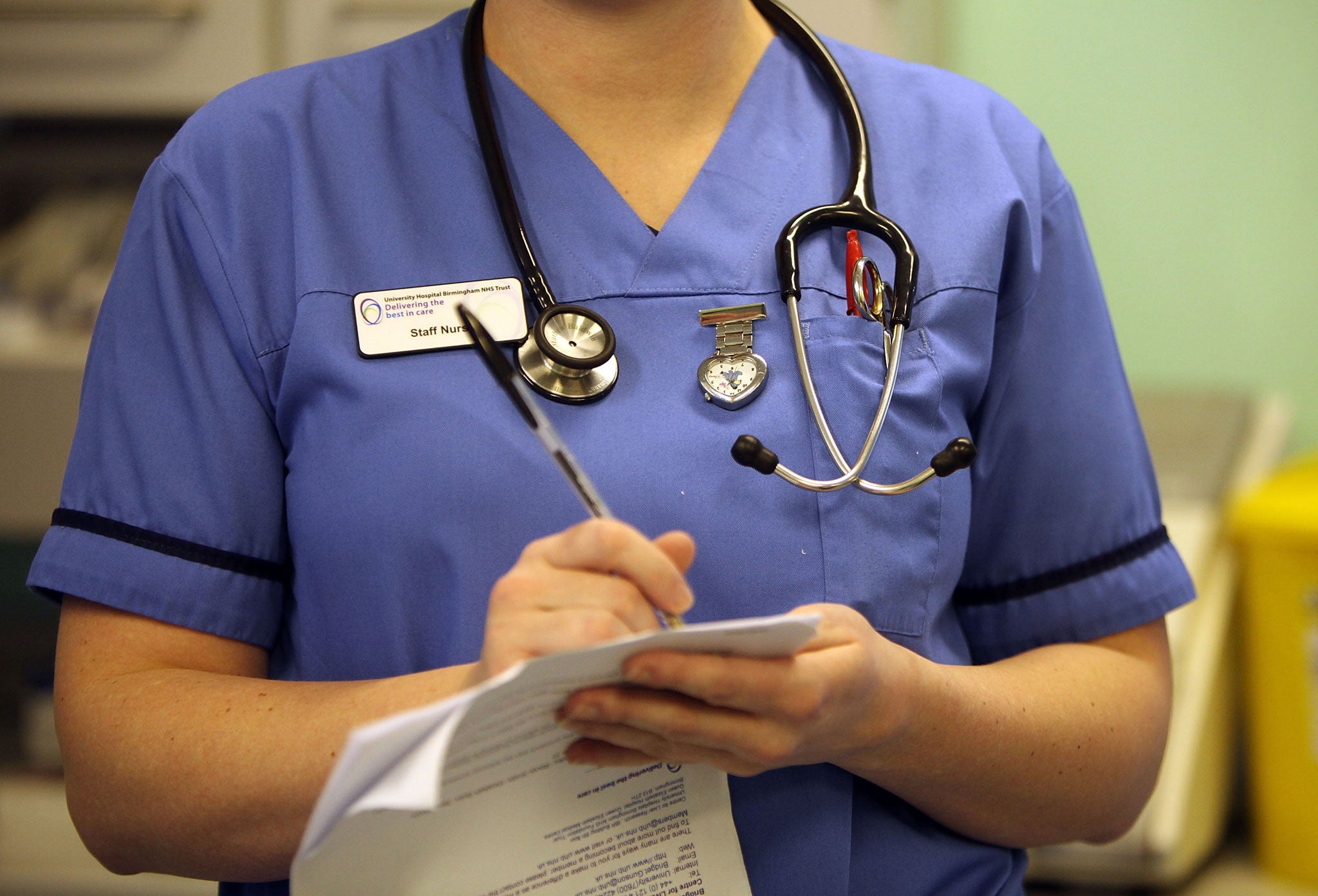Better kidney care could save thousands of lives
New NHS guidelines say 12,000 deaths could be prevented if patients have their kidneys checked

The lives of thousands of patients could be saved each year if more efficient kidney care is introduced into hospitals, according to new NHS guidance.
Between 262,000 and one million people admitted to hospital as an emergency patient will have acute kidney injury (AKI,) of which just under a quarter of patients will die.
Of these, at least 12,000 deaths could be prevented if patients received 'good' treatment, according to Nice.
Around 100,000 cases of acute kidney injury (AKI) - previously known as acute renal failure - could also potentially be prevented across England if simple but crucial checks are carried out regularly, such as ensuring patients are hydrated and their medicines are reviewed.
A new guideline from the National Institute for Health and Care Excellence (Nice) says AKI costs the NHS between £434 million and £620 million a year - more than it spends on breast, lung and skin cancer combined.
AKI refers to a loss of kidney function and symptoms can develop very quickly. It can occur in people who already suffer with illnesses such as heart failure or diabetes, and those admitted to hospital with infections. AKI can also develop after major surgery, such as some kinds of heart surgery, because the kidneys can be deprived of normal blood flow during the procedure.
If the condition is not spotted quickly it can potentially cause the kidneys to shut down, leading to severe illness and, in some cases, death.
A 2009 report from the National Confidential Enquiry into Patient Outcome and Death (NCEPOD) found only half of all patients with AKI had received good care, dropping to a third of those who developed it while in hospital.
A third of patients suffered due to inadequate examinations, including health staff not carrying out “simple” and “basic” checks.
Some staff were also found to be “poor” at recognising symptoms and did not always refer patients to kidney specialists in time. Drug prescription errors contributed to some deaths.
Dr Mark Thomas, chair of the new guideline development group and nephrologist at the Heart of England NHS Foundation Trust, said: “AKI has been something of a Cinderella condition in the past both within healthcare and in the public perception, yet it kills more people than any of the common cancers.
“In the past, the care for this condition has not always been uniformly good, partly because the patients have tended to present to a range of non-specialists who may have been unfamiliar with the best prevention and treatment of the condition.”
He said the NHS had made “continuing improvements” since the NCEPOD report, which itself had prompted Nice to develop new guidelines.
“It's now really over to the wider NHS to implement the guidance, which we believe can save both lives and money,” he said.
The guideline aims to ensure staff working in all parts of the NHS consider a diagnosis of AKI, not just those working in renal units.
The new guideline says NHS staff should measure serum creatinine levels - a marker of kidney function - in those with existing conditions such as heart failure, liver disease, diabetes, a history of kidney problems or blood poisoning.
Patients taking common drugs such as ibuprofen, ARBs or ACE inhibitors for high blood pressure and other conditions, or diuretics, should also be monitored closely as these can have a negative impact on kidneys.
Another basic check recommended by the review included measuring urine output.
Professor Mark Baker, director of the centre for clinical practice at Nice, said: “Acute kidney injury is a huge problem for the NHS.
“This new Nice guideline aims to raise awareness among healthcare professionals to recognise and treat the condition early and focuses on prevention, recognition, treatment and timely access to specialist services for all.”
Dr Thomas added: “Many hospitals and healthcare professionals have been doing an excellent job in watching out for acute kidney injury in their patients, but unfortunately this good practice is not seen everywhere.
“The Nice recommendations give the NHS clear advice to reduce the number of avoidable deaths through acute kidney injury.
“Trusts that already perform to an excellent standard are encouraged to share their good practice and those that have not been performing so well are encouraged to ensure that AKI is taken seriously and their staff are well trained in the prevention and detection of the condition.”
Fiona Loud, director of the Kidney Alliance, said: “Acute kidney injury is something that happens really quickly. Within a few hours your condition can become life-threatening, and it is completely avoidable.
“When something goes wrong in the body, the kidneys often suffer the consequences.
“Patients also play a role in the prevention and detection of AKI. Make sure you drink plenty of water and are regularly going to the toilet are ways to avoid the condition.”
More than half of people who develop AKI are over the age of 65.
Additional reporting from Press Association
Subscribe to Independent Premium to bookmark this article
Want to bookmark your favourite articles and stories to read or reference later? Start your Independent Premium subscription today.

Join our commenting forum
Join thought-provoking conversations, follow other Independent readers and see their replies